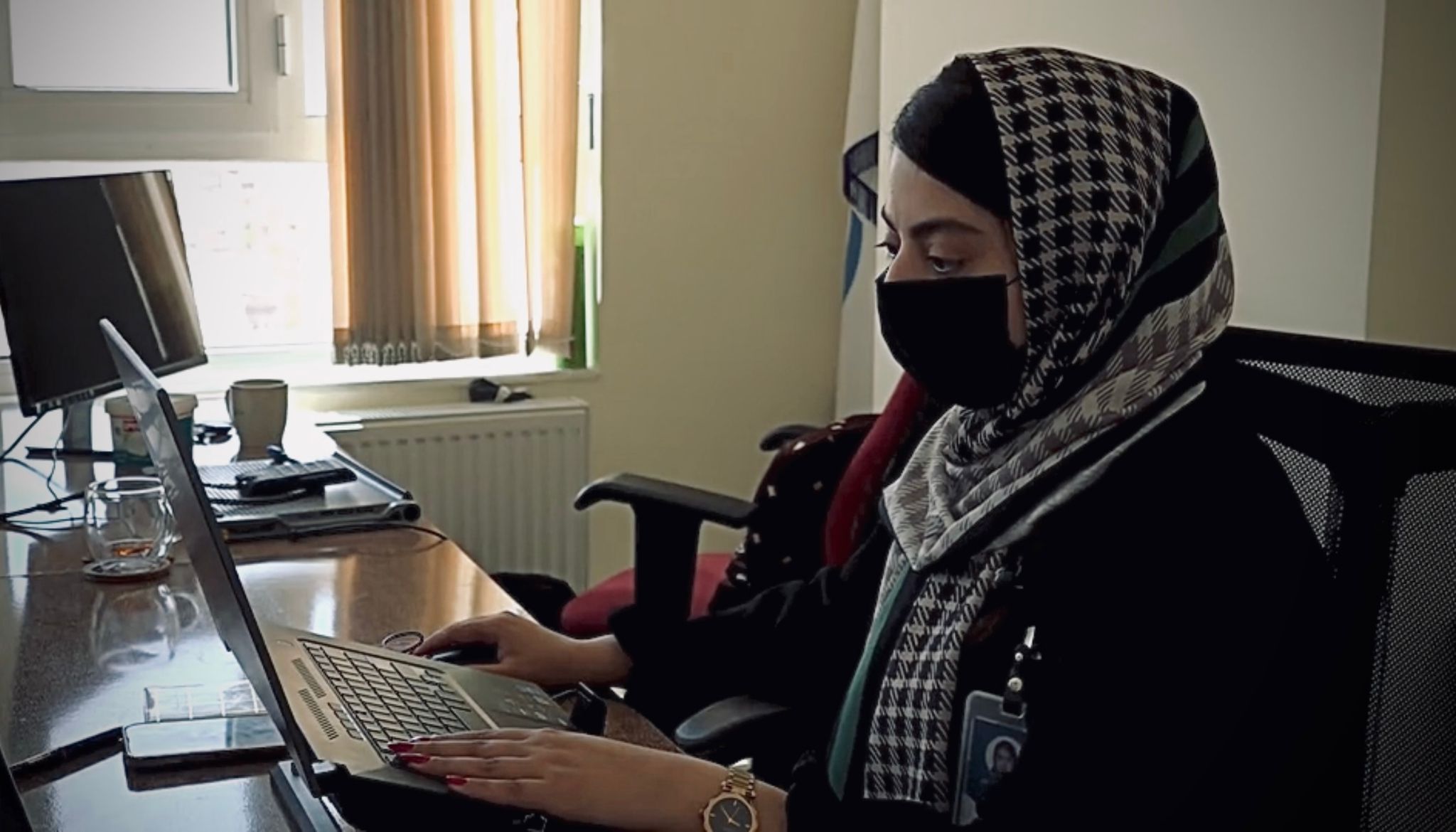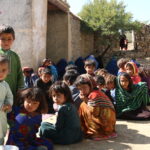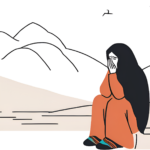The providers report strong demand from Afghan women for English language, science, and business courses. This surge follows the Taliban’s extension of the ban on female education to include higher education in December 2022.
Online learning has surged as a way to get around the curbs despite the dangers of discovery and difficulties with internet connectivity and power supplies.
A team of 12 individuals including 5 women in Herat created the Maktab app in 2016 to improve the accessibility of free education. Mozhda Peyman, who studied Graphic Design at the Faculty of Arts, Herat University, was part of this team. “The aim was to give girls access to online education.”
Five female colleagues working with Mozhda in design, social media, and other areas, “During COVID-19 and some other changes, the government changed and girls’ schools were closed. The Maktab application attracted more users.”
“Before, women went to schools, courses, and institutes; unfortunately, now there is no place to get their education in person. The Maktab app is handy for women as they can pursue their studies online,” added Mozhda.
The app was developed in 2016, and its user base has grown significantly since the Taliban prohibited women from attending schools and universities after August 2021. The user base reached 30,000 after the restrictions were imposed.
Mozhda emphasized the app’s ongoing mission: “Education is a right, not a privilege. Our app aims to ensure that every girl and woman in Afghanistan can continue to learn and grow, regardless of the obstacles.”
Yasna Sharifi, 15, using the Maktab app and still hopes to become an engineer
“I have been using the Maktab app for about two years and have benefited greatly,” Yasna said. Through the application, she has completed mathematics, physics, and English courses, resulting in improved grades and a deeper understanding of these core subjects.
“This app has benefited me a lot and helped me to get better grades and improve my skills,” she added. Her dedication to her studies, combined with the app’s support, has set her on a path toward her goal of becoming an engineer.
Looking ahead, Yasna is determined to turn her dreams into reality. “I will achieve my dreams by working hard and using good educational resources like the Maktab app,” she said. Her ambition to serve society through engineering.
In addition to her personal goals, Yasna encourages her peers to persevere in their educational journeys. “My message to other students is never to give up and always seek to learn,” she advised. Yasna also advocates for broader access to educational tools, urging the Taliban regime to ensure that all students have the resources they need to succeed. “I suggest the government provide educational facilities for everyone so everyone can succeed,”.
Shgoofa, 18, using the Maktab app and working to develop similar apps in the future
Shgoofa has completed advanced mathematics, physics, and Pashto language and literature courses. “I have been using the Maktab app for almost two years and have benefited greatly,” she said.
Shgoofa credits the app with giving her the tools to excel in her studies. “This application has helped me a lot to access quality educational resources and to be able to study independently,”.
Looking ahead, Shgoofa aspires to become a software engineer and develop applications that benefit society. She is confident in her ability to reach this goal: “Yes, I will achieve my dream because I can achieve my goals with hard work and using the right educational resources.”
Shgoofa encourages other women to embrace digital learning and continuously seek improvement. “My message to other students is always to seek to learn and improve and use digital learning resources,” she advised.
Internet access in Afghanistan is limited and unequal
Limited access to phones and computers and high internet prices challenge 99% of women using online education apps in the country.
According to a 2022 Gallup survey, 25% of men and 6% of women reported having access to the internet. Only 2% of women in rural areas said they had internet access.








